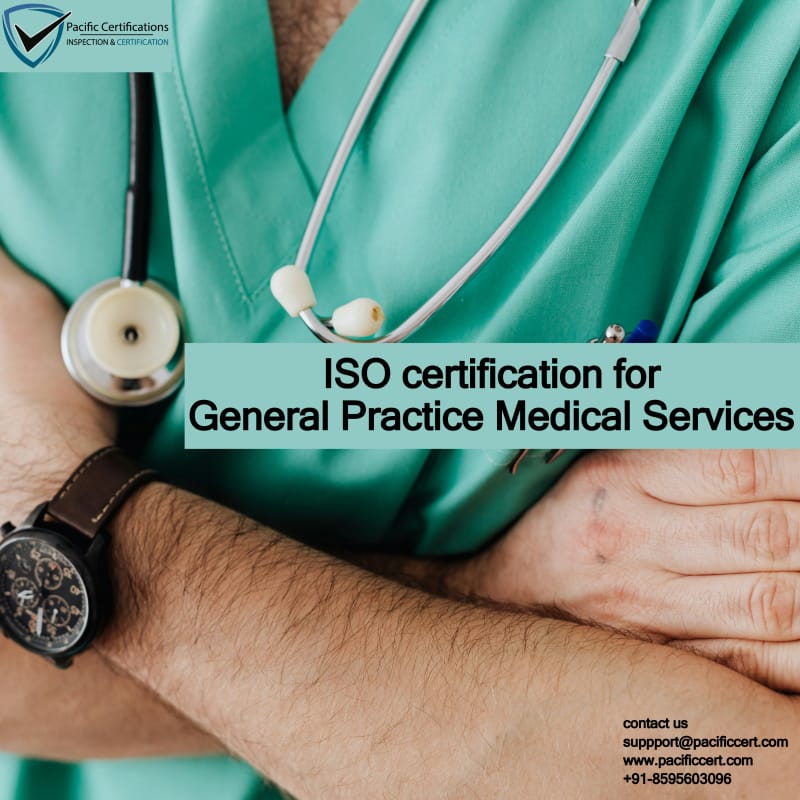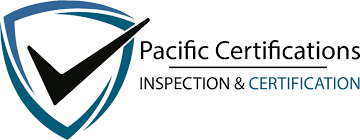ISO Certifications for General Practice Medical Services, Requirements and Benefits

For General Practice Medical Services, obtaining ISO certification can help establish credibility, ensure compliance with industry standards, and enhance overall service quality. Here are some applicable ISO standards and how we at Pacific Certifications can assist in the audit and certification process:
Applicable ISO Standards for General Practice Medical Services
ISO 9001:2015 - Quality Management Systems
This standard is pivotal for medical services, focusing on consistent quality and customer satisfaction. It helps establish a framework to ensure that patients receive high-quality care that meets regulatory requirements.
ISO 13485:2016 - Medical Devices - Quality Management Systems
For practices that use medical devices, ISO 13485 is crucial. It outlines requirements for a quality management system where an organization needs to demonstrate its ability to provide medical devices and related services that consistently meet customer and applicable regulatory requirements.
ISO 27001:2013 - Information Security Management Systems
Medical practices handle sensitive patient data. ISO 27001 helps ensure the confidentiality, integrity, and availability of patient information, enhancing trust and compliance with data protection regulations.
ISO 45001:2018 - Occupational Health and Safety Management Systems
This standard helps practices manage occupational health and safety risks, promoting a safer working environment for healthcare professionals and patients.
Click here to find out more applicable standards to your industry
How Pacific Certifications Can Assist?
1. Gap Analysis and Consultation
We can perform a preliminary gap analysis to determine your current compliance level with the desired ISO standards. This involves identifying any areas that need improvement to meet the standards' requirements.
2. Training
We provide training sessions to educate your staff about the ISO standards and the best practices for implementing an effective management system. This includes understanding the documentation requirements, operational improvements, and compliance necessities.
3. Documentation Assistance
Creating the necessary documentation can be complex. We offer assistance in developing, reviewing, and refining your quality manuals and procedural documents to ensure they meet ISO standards.
4. Pre-audit Assessment
Before the actual certification audit, Pacific Certifications can conduct a pre-audit assessment. This internal audit helps to uncover any remaining gaps and provides a chance to correct them before the formal review.
5. Certification Audit
We will perform the official audit. This audit assesses your organization’s compliance with the ISO standards. If the audit is successful, your practice will receive the ISO certification, demonstrating your commitment to quality and safety.
6. Continuous Improvement
Post-certification, we help maintain and continually improve your management systems through regular surveillance audits and re-certification processes, ensuring ongoing compliance and performance enhancement.
We ensure that you maintain high standards of quality and safety, fostering trust and satisfaction among your patients. If you're ready to start the process or need more detailed information, you can contact us at [email protected]
Requirements of ISO certifications for General Practice Medical Services
ISO certification for General Practice Medical Services offers numerous benefits and involves specific requirements that can substantially enhance the quality and efficiency of healthcare delivery. Below are the key requirements for achieving ISO certification and the benefits that come with it.
Establishing a Quality Management System (QMS)
Documentation: Develop comprehensive documentation of processes, policies, and procedures adhering to ISO standards, such as ISO 9001 or ISO 13485.
Management Responsibility: Top management must demonstrate their commitment to the QMS by ensuring resources are available, setting quality objectives, and conducting reviews.
Employee Competence and Training
Ensure all staff are adequately trained and competent in their roles, understanding their impact on quality and compliance.
Patient-Focused Services
Implement systems and procedures that prioritize patient safety, consent, confidentiality, and rights.
Risk Management
Apply a systematic approach to risk management particularly in clinical processes to minimize potential hazards related to patient care.
Process Control and Improvement
Regular monitoring and measurement of processes and implementing improvements based on data and feedback.
Data Security and Management
For ISO 27001, specifically, establish robust information security management systems to protect patient data against unauthorized access and breaches.
Regulatory Compliance
Ensure compliance with local, national, and international laws and regulations relevant to healthcare services.
Benefits of ISO Certifications for General Practice Medical Services
Below are the key benefits for achieving ISO certification and the benefits that come with it.
Enhanced Quality of Care
Standardized processes lead to consistency in healthcare services, improving the quality of care provided to patients.
Increased Patient Satisfaction
Reliable and safe practices increase patient trust and satisfaction by ensuring their needs and expectations are met.
Improved Risk Management
ISO standards facilitate better risk assessment and management, reducing the likelihood of errors and improving patient safety.
Operational Efficiency
Streamlined procedures and continuous improvement initiatives lead to greater operational efficiency and reduced costs.
Competitive Advantage
Certification can distinguish a medical practice from competitors, potentially attracting more patients and skilled employees.
Regulatory Compliance
ISO Certification helps ensure that practices are compliant with relevant regulations and standards, reducing the risk of legal or regulatory penalties.
Enhanced Reputation
Achieving ISO certification demonstrates a commitment to maintaining a high standard of practice, enhancing the reputation among patients, regulatory bodies, and the community.
Data Security
For practices implementing ISO 27001, enhanced data security measures protect sensitive patient information, crucial in today’s digital age.
This process not only benefits the patients but also boosts the company’s operational effectiveness and regulatory compliance.
Contact Us
Pacific Certifications is accredited by ABIS, in case you need support with ISO certification for your General Practice Medical services business, please contact us at [email protected] or +91-8595603096.
Read more: Pacific Blogs

